Intro
Learn 5 expert tips from a Hand Foot Mouth Doctor to prevent and treat HFMD. Manage symptoms, reduce contagion, and soothe painful sores with effective home remedies and medical treatments.
Hand, foot, and mouth disease (HFMD) is a common viral illness that affects individuals of all ages, but it is most prevalent among children under the age of 10. The disease is characterized by the appearance of sores in the mouth and a rash on the hands and feet. While HFMD is typically a mild and self-limiting condition, it can be uncomfortable and even painful for those affected. In this article, we will explore five valuable tips from doctors on how to manage and treat HFMD, as well as provide insights into the causes, symptoms, and prevention strategies for this common viral illness.
The importance of understanding HFMD cannot be overstated, as it allows individuals to take proactive steps to prevent the spread of the disease and seek appropriate medical care when necessary. By recognizing the signs and symptoms of HFMD, individuals can take steps to mitigate its impact and reduce the risk of complications. Moreover, a comprehensive understanding of HFMD enables individuals to make informed decisions about their health and the health of their loved ones.
HFMD is a highly contagious disease that can spread quickly through close contact with an infected individual or contaminated surfaces. The disease is caused by viruses such as coxsackievirus A and enterovirus 71, which are shed in the stool, respiratory secretions, and blister fluid of infected individuals. As HFMD is a viral illness, it does not respond to antibiotics, and treatment is primarily focused on relieving symptoms and preventing complications. By understanding the causes and transmission of HFMD, individuals can take steps to prevent its spread and reduce the risk of infection.
Understanding Hand Foot Mouth Disease
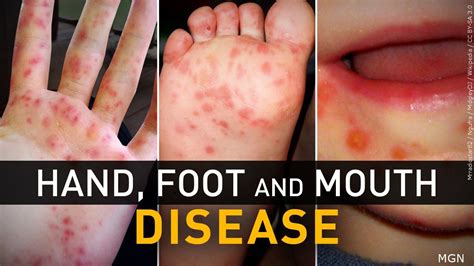
Causes and Transmission of HFMD
The causes of HFMD are attributed to viruses such as coxsackievirus A and enterovirus 71, which are shed in the stool, respiratory secretions, and blister fluid of infected individuals. The disease can spread quickly through close contact with an infected individual or contaminated surfaces. Individuals can become infected with HFMD by touching contaminated surfaces, shaking hands with an infected individual, or sharing food and drinks with someone who has the disease.Tips for Managing Hand Foot Mouth Disease
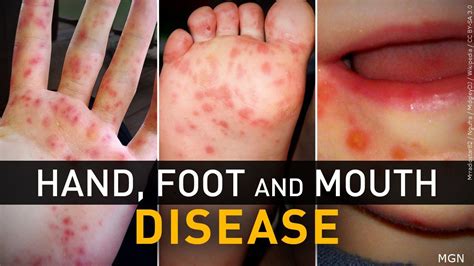
Preventing the Spread of HFMD
Preventing the spread of HFMD is crucial to reducing the risk of infection. Here are some tips to help prevent the spread of HFMD: * Practice good hygiene: Wash hands frequently with soap and water, especially after using the bathroom, before eating, and after changing diapers. * Avoid close contact: Avoid close contact with individuals who have HFMD, and avoid sharing food, drinks, or utensils. * Clean and disinfect surfaces: Clean and disinfect surfaces regularly, especially in areas where individuals with HFMD have been. * Stay home: If you or a family member has HFMD, stay home from work or school to prevent the spread of the disease.Complications of Hand Foot Mouth Disease
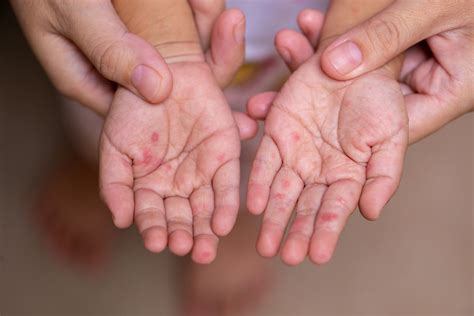
Treatment Options for HFMD
Treatment for HFMD is primarily focused on relieving symptoms and preventing complications. Here are some treatment options for HFMD: * Pain relievers: Over-the-counter pain relievers such as acetaminophen or ibuprofen can help reduce fever and relieve pain. * Topical treatments: Topical treatments such as oral gels or sprays can help relieve pain and discomfort associated with mouth sores. * Antiviral medications: In some cases, antiviral medications may be prescribed to help treat HFMD. * Supportive care: Supportive care such as rest, hydration, and nutrition can help the body recover from HFMD.Seeking Medical Attention for HFMD
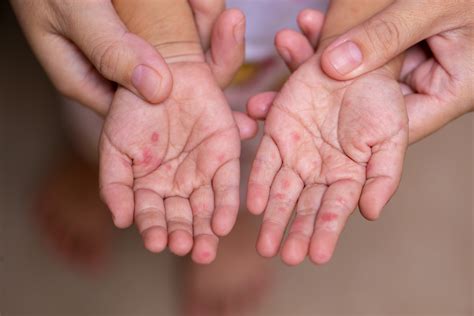
Long-Term Effects of HFMD
The long-term effects of HFMD are typically minimal, and most individuals recover fully from the disease. However, in some cases, HFMD can lead to long-term complications such as: * Neurological damage: In rare cases, HFMD can cause neurological damage, especially if it leads to complications such as meningitis or encephalitis. * Immune system suppression: HFMD can suppress the immune system, making individuals more susceptible to other infections. * Increased risk of other diseases: Some studies suggest that individuals who have had HFMD may be at increased risk of developing other diseases, such as type 1 diabetes.Conclusion and Final Thoughts
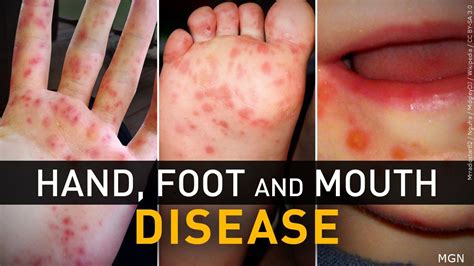
We invite you to share your thoughts and experiences with HFMD in the comments section below. Have you or a loved one been affected by HFMD? What steps did you take to manage the symptoms and prevent the spread of the disease? Your input can help others who may be going through a similar experience.
What are the symptoms of Hand Foot Mouth Disease?
+The symptoms of Hand Foot Mouth Disease include fever, mouth sores, and a rash on the hands and feet. In some cases, it can also cause headache, fatigue, and irritability.
How is Hand Foot Mouth Disease transmitted?
+Hand Foot Mouth Disease is transmitted through close contact with an infected individual or contaminated surfaces. It can also be spread through the air when an infected individual coughs or sneezes.
Can Hand Foot Mouth Disease be prevented?
+Yes, Hand Foot Mouth Disease can be prevented by practicing good hygiene, such as washing hands frequently with soap and water, and avoiding close contact with individuals who have the disease.
What are the complications of Hand Foot Mouth Disease?
+The complications of Hand Foot Mouth Disease can include dehydration, bacterial superinfections, neurological complications, and respiratory complications. In rare cases, it can also cause long-term effects such as neurological damage and immune system suppression.
How is Hand Foot Mouth Disease treated?
+Hand Foot Mouth Disease is typically treated with over-the-counter pain relievers, topical treatments, and supportive care such as rest, hydration, and nutrition. In some cases, antiviral medications may be prescribed to help treat the disease.
